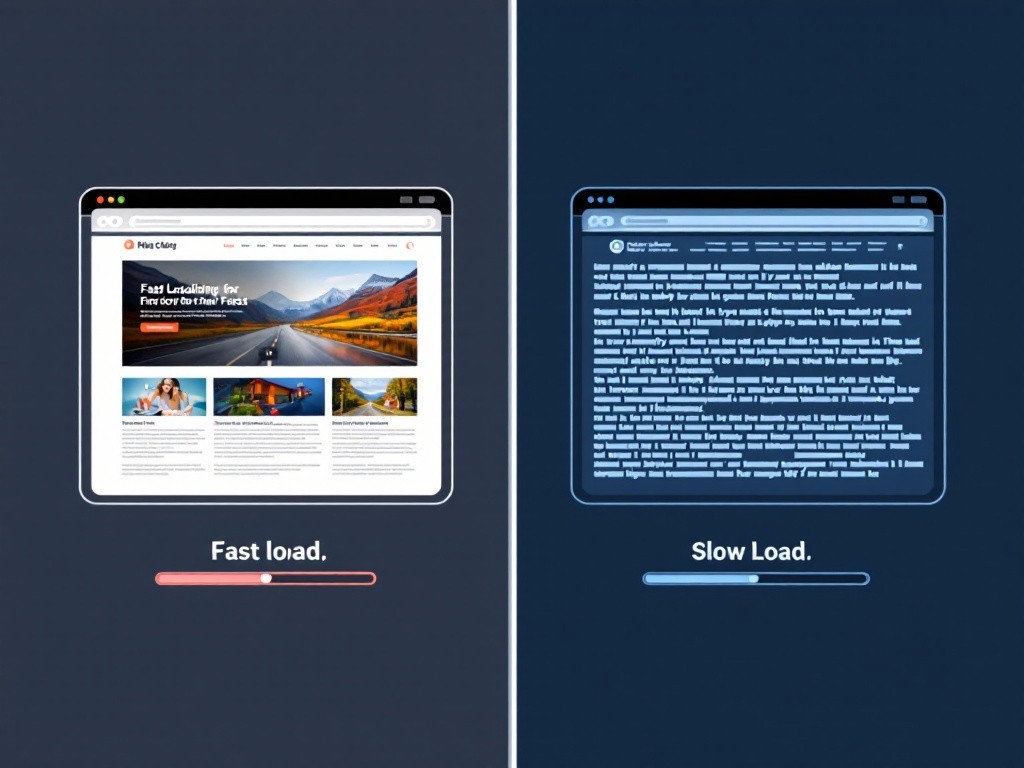Why Website Speed Matters for SEO

In today’s fast-paced digital world, website speed is paramount. Not only does it impact user experience, but it also plays a significant role in your search engine optimization (SEO) efforts. This post explores why website speed matters for SEO and how it can affect your online visibility.
User Experience and Engagement
Website speed directly impacts user experience. A slow-loading website can lead to frustration, causing visitors to abandon your site before they even see your content. This high bounce rate signals to search engines that your site isn’t providing a positive user experience, potentially harming your search rankings. Conversely, a fast-loading website keeps users engaged, encouraging them to explore more pages and spend more time on your site. This positive user engagement can positively influence your SEO.
Mobile-First Indexing
With the increasing dominance of mobile devices, Google has adopted a mobile-first indexing approach. This means Google primarily uses the mobile version of your website for indexing and ranking. Since mobile users are often on slower connections, website speed is even more critical for mobile SEO. A slow mobile site can significantly hinder your visibility in mobile search results.
Crawl Budget
Search engines have a limited “crawl budget” for each website. This refers to the amount of time and resources search engine bots allocate to crawling and indexing your site. A slow website can consume a significant portion of your crawl budget, preventing search engines from efficiently indexing all your important pages. This can negatively impact your overall SEO performance.
Conversion Rates
Website speed can directly influence your conversion rates. A fast-loading website provides a seamless and efficient user experience, making it easier for visitors to complete desired actions, such as filling out a form, making a purchase, or subscribing to a newsletter. Improved conversion rates are a positive signal to search engines, potentially boosting your search rankings.
Core Web Vitals
Google’s Core Web Vitals are a set of metrics that measure user experience, focusing on aspects like loading performance, interactivity, and visual stability. These metrics are now a ranking factor in Google’s algorithm, meaning website speed directly impacts your search visibility. Optimizing your website for Core Web Vitals is essential for achieving good SEO performance.
How to Improve Website Speed
Several strategies can help improve your website speed:
- Optimize Images: Compress images to reduce file sizes without sacrificing quality.
- Minimize HTTP Requests: Reduce the number of elements on your pages, such as images, scripts, and stylesheets, to minimize HTTP requests.
- Use a Content Delivery Network (CDN): A CDN distributes your website’s content across multiple servers worldwide, reducing latency and improving loading times for users in different locations.
- Enable Browser Caching: Browser caching allows users’ browsers to store static assets, such as images and CSS files, reducing the amount of data that needs to be downloaded on subsequent visits.
- Minify CSS and JavaScript: Remove unnecessary characters and whitespace from your CSS and JavaScript files to reduce file sizes.
- Choose a Fast Web Host: A reliable and fast web host is crucial for optimal website performance.
By prioritizing website speed, you can improve user experience, boost your SEO efforts, and ultimately achieve greater online success. Investing in website optimization is an investment in your online presence and business growth.

